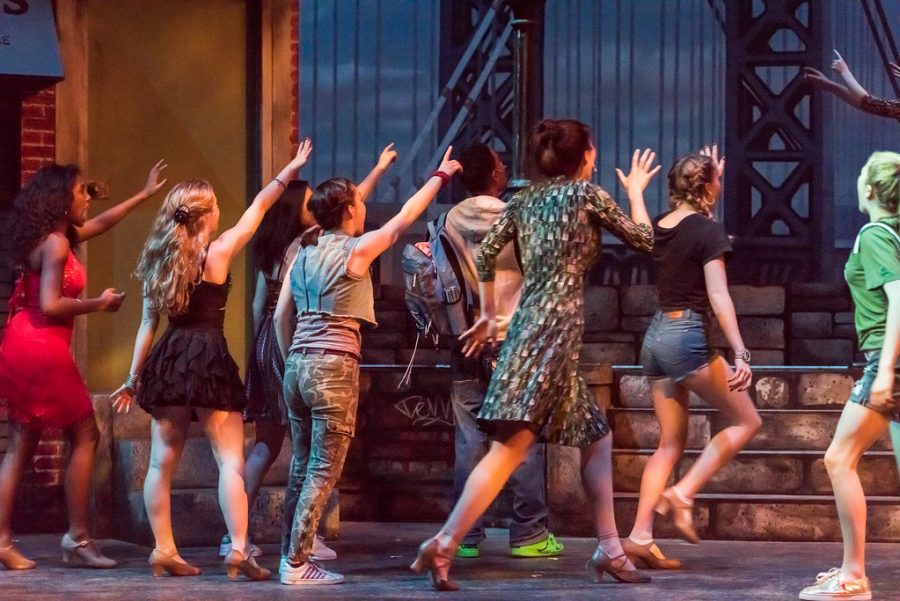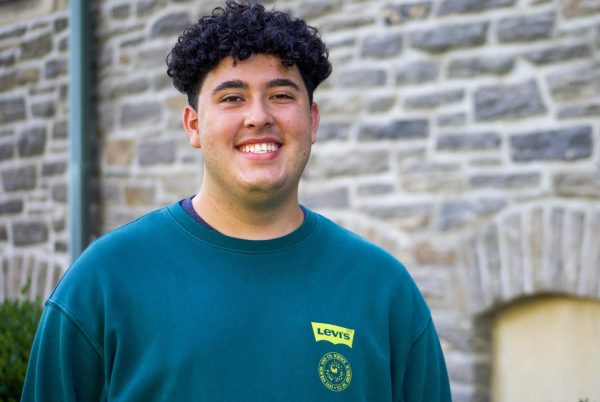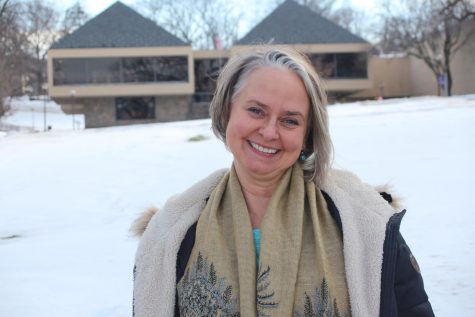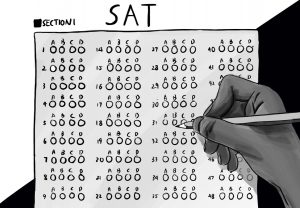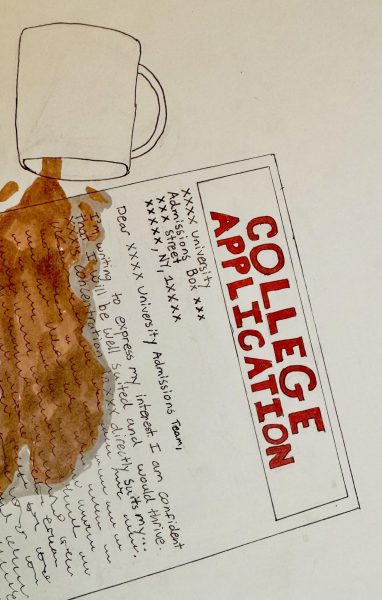In the Heights or In the Whites; What responsible casting should look like at Masters
Steve Pisano/FLICKR https://creativecommons.org/licenses/by/2.0/
Poly Prep Performs In The Heights, on Feb. 4, 2016. High school performances have taken place but issues about race and casting make staging the production problematic at Masters.
October 27, 2021
Masters Theater Company is hoping to perform the play “In the Heights” for this winter’s musical. Sounds simple enough, right? Wrong.
Last June, Director Lin Manuel Miranda released a film version of the critically acclaimed Broadway musical, In the Heights. Though the film did fail to draw crowds to the theaters, what it did receive was a lot of backlash for not casting more darker-skinned and/or Afro-Latino actors, because Washington Heights, where the show is set, has lots of Afro-Latinos there. That movie underrepresented a minority group.
What is responsible casting you might ask? Responsible casting in my opinion is a non-debatable thing, where characters should be cast by their race and/or their ethnicity to accurately represent the group of people that character is supposed to represent in that show.
There are 11 main characters in this show, ten of them being Latino and one of them being Black. Imagine if Masters cast the 11 main characters of that show as white students. That would be disastrous and some, if not many, community members will even find that offensive to their culture. Placing privileged white students who don’t understand Latino and Black culture into the roles of underprivileged Latinos and Black people is not responsible casting whatsoever.
Though theatre companies around the world have been able to get away with not casting responsibly, it was wrong back then and is still wrong now. There are many very talented and qualified Latino and Black actors, singers and dancers in our community.
I spoke to the Director of the Masters Theatre Company, Meg O’Connor and she shared the same sentiments as I, saying, “I think the first, most obvious, and easiest thing to avoid is having white people play roles that are identified specifically as roles for people of color. I think that’s just the number one thing. I think that’s something that has not always been done, I’m talking about theater at large and also sometimes in educational theater as well.” O’Connor also noted that the only reason the Theatre company is planning on doing In The Heights is because students of color have taken the initiative and asked her to do a show with mainly people of color.
Even if you think that it doesn’t matter how you cast a show, if you don’t cast a Latino character with a Latino student you’re doing a disservice to the quality of the entire show. In a show like “In the Heights”, people who are even the slightest bit familiar with the culture the show represents would watch and realize that it’s not accurately represented and it especially takes away from the authenticity and quality of the show.
Now I understand that some may say that “actors are just actors” but even then it should not matter. Most famous shows like Macbeth, Hamlet, Dracula and Dear Evan Hansen, have all had main characters that represent white people. White students and actors have had more than enough opportunity to play roles that represent their own race, culture and history. When a show like In The Heights comes around, where all of the characters are people of color, it should be undisputed that people of color play roles that are specified for people of color. Latino and Black actors have seldom had the opportunity to play roles that are representative of their race and culture. Creating these equal opportunities, the same way white people have always had the opportunity to play a role representative of themselves, is very important to push the charge of social and racial justice in the realm of theater. The only way to create these equal opportunities for this show and future shows is to cast responsibly.



